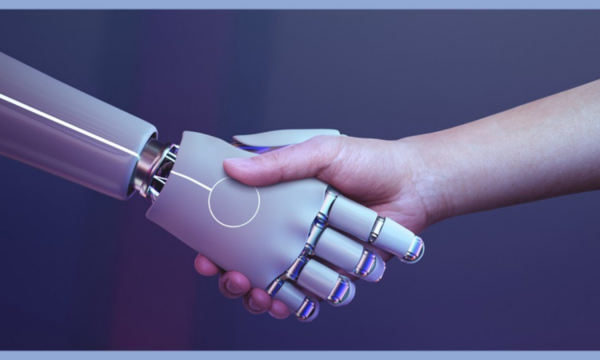AI is the most debated technology of the current generation. There are two distinctively contrasting methods to AI, the future technology. One approach assumes that AI would take humankind to the next level of gain and creation , akin to the Industrial Revolution of the 18th century . The other rotates around the fear that AI will revoke the human world
Many of my friends strongly believe that the rise of artificial intelligence will make most people better off , on the other hand many believe AI will affect what it means to be human.
The purpose of this article is to explain the benefits of AI and how it can create new businesses and improve the quality of life for individuals , akin to the Industrial Revolution of the 18th century:

Artificial intelligence (AI) plays a significant role in the fourth industrial revolution by enabling automation, advanced robotics, and smart machines that can learn and make decisions.
- Automation and Efficiency:
- AI technologies can automate routine and repetitive tasks, allowing humans to focus on more creative and complex aspects of their work.
- Increased efficiency in business operations can lead to cost savings, higher productivity, and the ability to allocate resources to more innovative endeavors.
- New Business Models:
- AI opens the door to novel business models and opportunities. For instance, companies can leverage AI for personalized product recommendations, predictive analytics, and customizing services to meet individual needs.
- Startups specializing in AI applications can emerge, creating job opportunities and economic growth.
- Innovation and Creativity:
- AI can augment human creativity by assisting in tasks like design, content creation, and problem-solving.
- The combination of human intuition and AI capabilities can lead to breakthroughs in various fields, fostering innovation.
- Enhanced Decision-Making:
- AI systems can analyze vast amounts of data at high speed, providing valuable insights for decision-making.
- Businesses can make more informed and strategic decisions, leading to improved outcomes and growth.
- Healthcare Advancements:
- AI in healthcare can contribute to faster and more accurate diagnostics, personalized treatment plans, and drug discovery.
- This can result in improved health outcomes, reduced healthcare costs, and a higher quality of life for individuals.
- Environmental Sustainability:
- AI technologies can be employed to monitor and manage environmental challenges, such as climate change and resource depletion.
- Businesses can develop sustainable practices with the help of AI, contributing to a more environmentally friendly and responsible economy.
- Job Creation:
- While AI may automate certain tasks, it also has the potential to create new job opportunities in AI development, maintenance, and oversight.
- Historical examples, like the Industrial Revolution, show that technological advancements eventually lead to the creation of new and diverse employment opportunities.
- Education and Skill Development:
- The rise of AI emphasizes the importance of education and skill development. Continuous learning and adaptation to new technologies become crucial for staying relevant in the job market.
In summary, the integration of AI into various aspects of society has the potential to bring about positive transformations, just as the Industrial Revolution did. By embracing the opportunities AI presents, individuals and businesses can contribute to a future that is more efficient, innovative, and beneficial for humanity. The key lies in responsible development, ethical use, and ensuring that the benefits of AI are shared widely.


Leave a Reply
You must be logged in to post a comment.